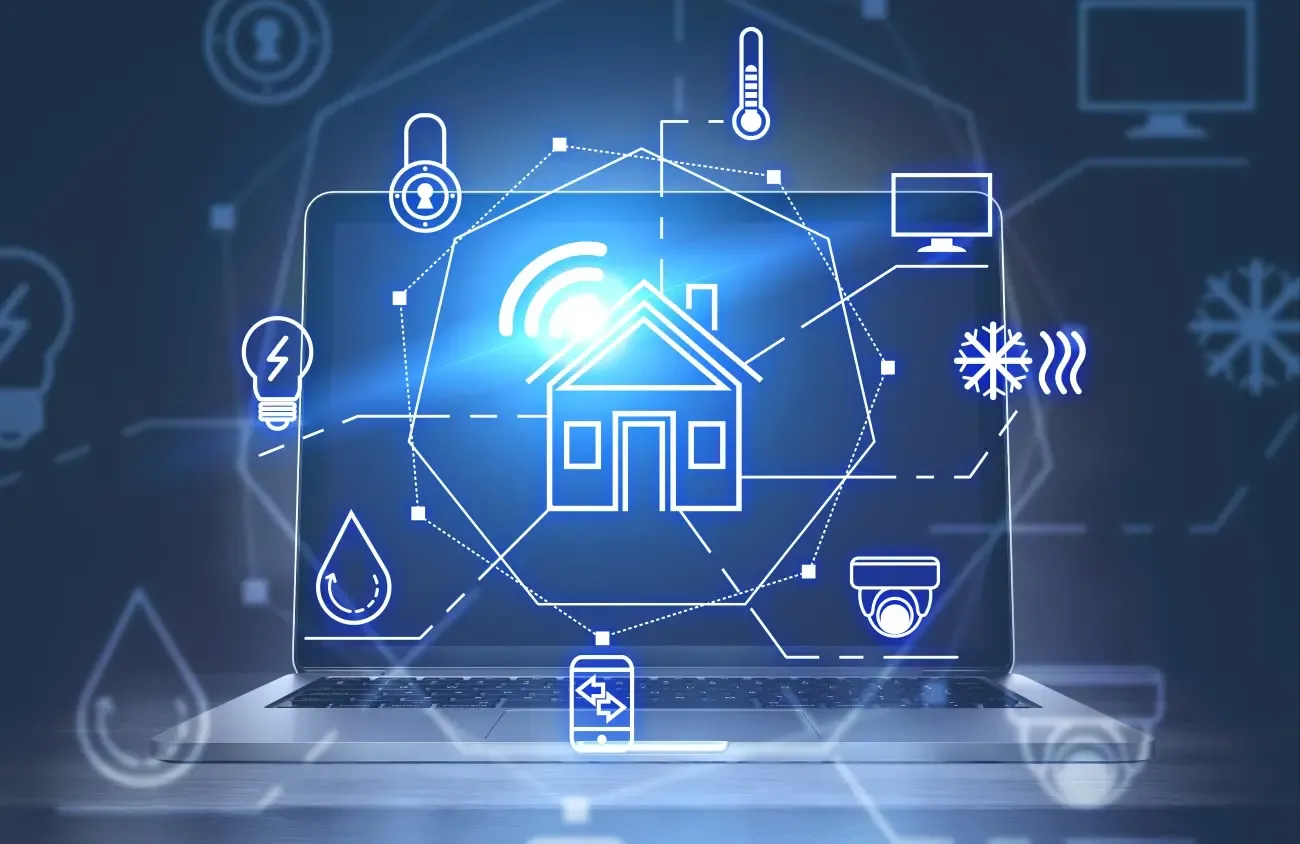How often do you leave the lights on unnecessarily? Or are the bedroom windows left open too long resulting in a cold upper floor? Or does the heating stay on while you have already left your house? Within a special innovation project, advanced technology and artificial intelligence (AI) are being used to develop smart homes that think along the residents.

Sustainable living through AI
Sustainability and energy conservation are at the heart of the cross-border GO-Kit innovation project, which uses advanced technology and AI to take the sustainability of existing homes to a new level. In an innovative approach led by the Open University, 10 pilot homes in two Dutch municipalities (9 in Heerlen and 1 in Brunssum) and 5 pilot homes in two Belgian municipalities (3 in Bilzen and 2 in Hoeselt) are being equipped with sensors and AI systems to promote energy savings and reduce CO2 emissions. A smart home that thinks along with the resident about energy savings, with the goal of allowing residents to live more energy-efficiently without having to drastically change their own lifestyle.
From test phase to learning phase
Participating residents will be actively involved in the project and measurements and testing will be conducted over four seasons of the year. At this time, the first prototypes are set and initial testing and validation are completed. Now the first measurements, the so-called baseline measurement, will follow in the 15 participating houses. This will be followed by the learning phase, in which the basis of the system is the use of self-learning algorithms. These algorithms will eventually support the residents to reduce their energy consumption and thus lower their CO2 emissions. This not only contributes to a more sustainable future, but also provides convenience for residents, homeowners and housing associations by also enabling preventive maintenance.
Energy Savings and Awareness
Researchers have found that advanced technologies often result in what is known as the "rebound effect," in which residents start using more energy in the expectation that technology will compensate. GO-Kit aims to counter this effect by designing IoT, sensor, software and AI systems that not only automatically save energy, but also create awareness and promote sustainable behavior.
Dr. Deniz Iren, Associate Professor, Open University of the Netherlands
The visible negative effects of human activity on the planet, such as excessive carbon emissions and a changing climate, often leave individuals feeling powerless. With GO-Kit, we aim to empower people by providing scientific methods and leveraging AI technologies, enabling them to contribute to positive change.
Samenwerking voor innovatie
This innovation initiative, which promotes cooperation between research parties, industry and institutions, contributes to the socioeconomic development of the Parkstad Limburg region and Belgian Limburg. It strengthens business, improves the labor market and contributes to a more sustainable future for all of us. Habenu van de Kreeke, a construction company that has long sought solutions to these challenges, is an important partner in the GO-Kit project.
The company is installing the sensors and contributing to the design of the self-learning algorithms. The Flemish firm Calculus receives the data from the sensors and delivers it anonymously to the Open University, where the algorithm is developed. The results from the pilot homes and residents provide crucial input to further adapt the GO-Kit to eventually bring it to market.
The future of energy savings
The GO-Kit project shows that sustainability and technology can go hand in hand, and challenges the further development of energy saving in the building sector.
The cross-border project is a Regio Deal Parkstad Limburg project and is financed by both provinces of Limburg, the City Region of Parkstad Limburg, the Municipality of Heerlen and Weller Wonen Foundation. In addition, the housing corporations Weller Wonen, Wonen Zuid and Wonen in Limburg, Habenu van de Kreeke, Calculus and Embuild Limburg are involved in the project.